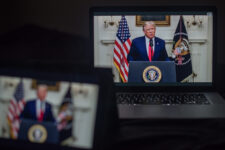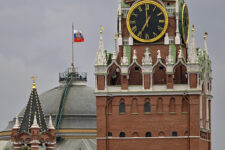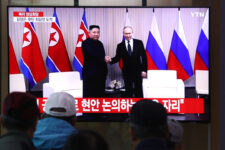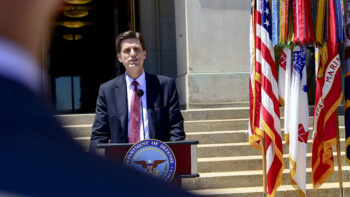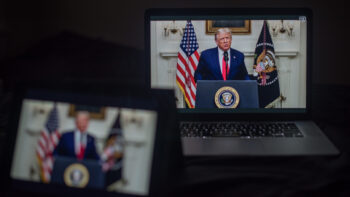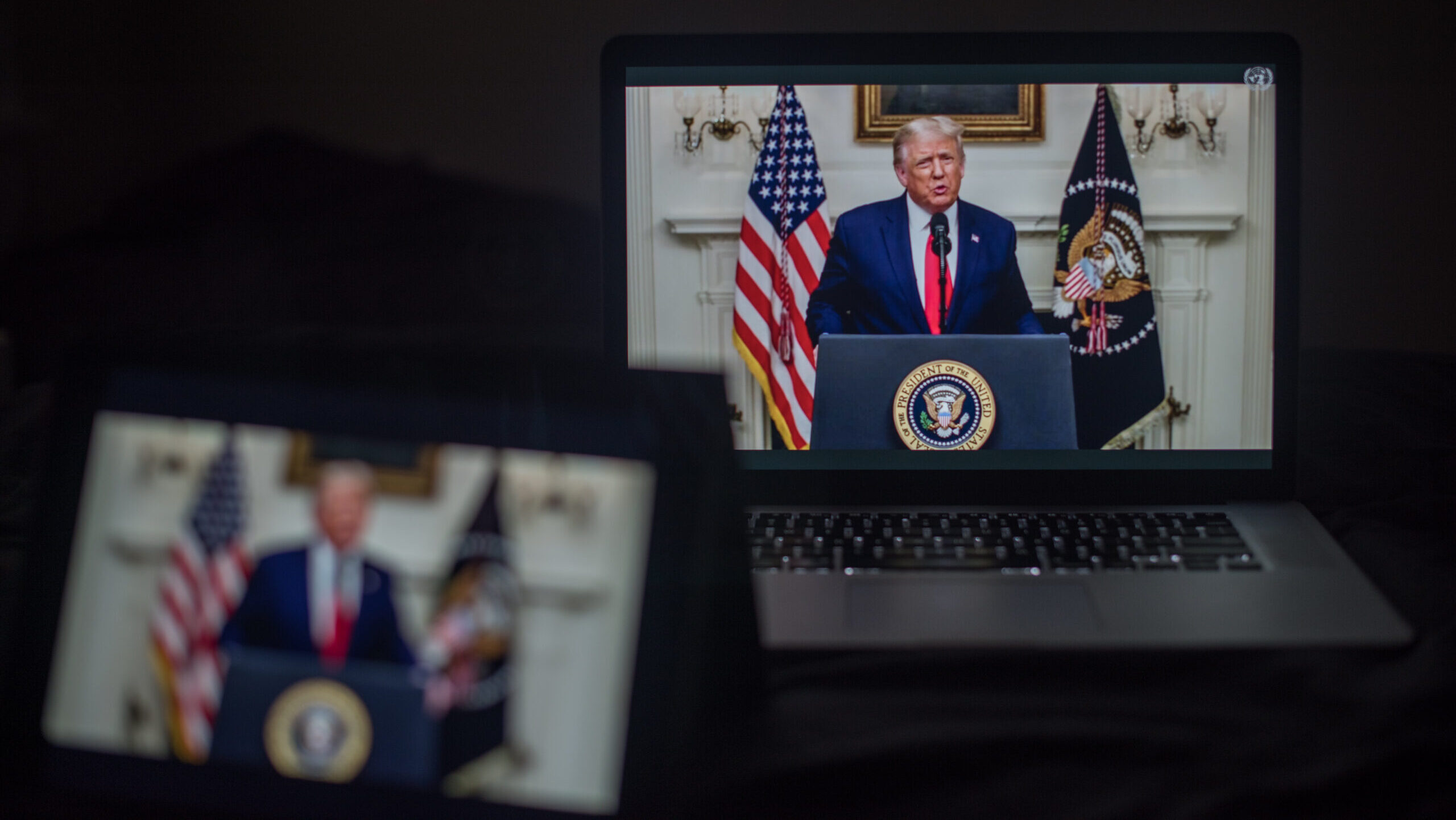
President Elect Donald Trump speaks during the United Nations General Assembly (Bloomberg via Getty Images)
BELFAST — President-elect Donald Trump’s return to the White House looks set to spark tension and trouble in Europe with fears that he will end the war in Ukraine on terms of greater advantage to Russia.
Peace plan proposals reportedly floated by the incoming president’s team include Ukraine ceding territory to its neighbor and removing future NATO membership for Ukraine. Trump’s NATO position would be in direct opposition to the alliance’s stated approach — that Ukraine is on an “irreversible path” to securing membership — and runs the risk of opening up a high profile dispute with allies and NATO Secretary General Mark Rutte.
[This article is one of many in a series in which Breaking Defense reporters look back on the most significant (and entertaining) news stories of 2024 and look forward to what 2025 may hold.]
Rutte already appears to be pre-empting Trump’s tactics and has openly talked of making Ukraine’s hand “stronger” at the negotiating table with Russia by urging allies to increase military aid commitments and ramping up defense production across Europe.
Despite not singling out Trump’s purported peace plan ideas specifically, Rutte has increasingly talked of not allowing a “bad deal” for Ukraine to go ahead by messaging that, “what you can never have is high fiving” between North Korea’s leader Kim Jong Un and China’s President Xi Jinping. He has also been clear that the peace deal must be fit for purpose because it is pivotal to the long term defense and security not just of Europe and the US, but the Indo-Pacific region too.
More generally, Trump’s dislike of NATO will likely lead to uncertainty over the future of the alliance, though it remains to be seen if this time around, he will again threaten to pull the US from the institution. On several occasions during 2018, Trump privately said he wished to withdraw from NATO, according to the New York Times.
Congress has since approved legislation that stops any president from making that move without approval from the Senate or via an act of Congress. Trump’s hands would not be tied entirely on the matter though, because he could call on presidential authority over foreign policy as a workaround, per Politico. However those permutations potentially play out, Trump’s undermining of NATO will ultimately continue to play into the hands of Russia, weaken deterrence, cast doubt on allied unity, and force European nations to look inward and take on more burden sharing.
Enacted or expected rises in defense spending across Europe, notably from Poland and the Baltic nations, alongside moves like France and the UK discussing sending troops to Ukraine, appear to demonstrate that the continent will attempt to be more self-reliant on military matters. But there is little question that Europe will be considerably weakened if Trump’s worst impulses are acted on.
